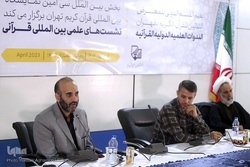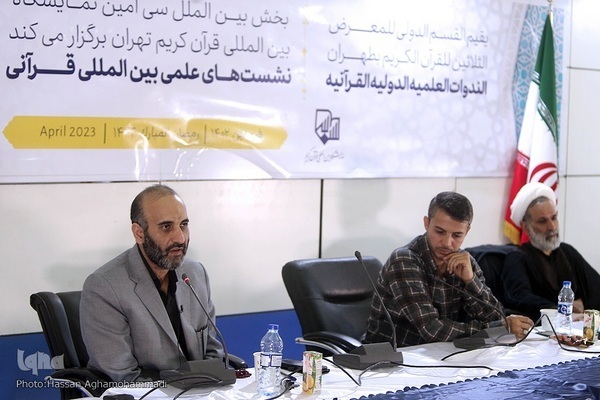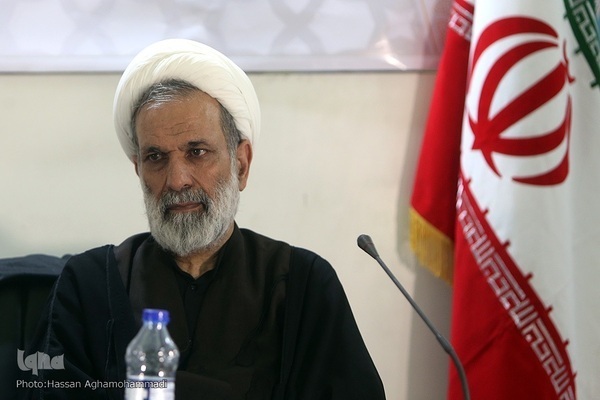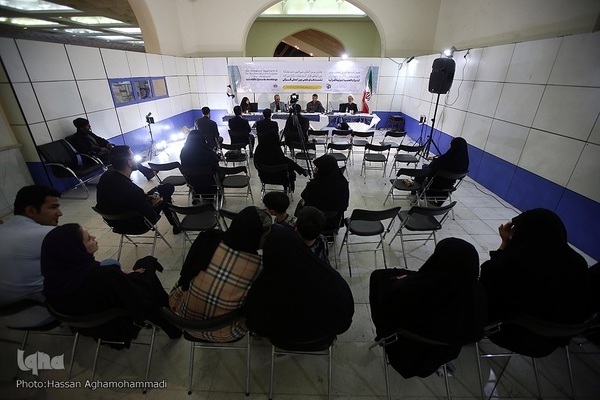Not All Orientalists Biased in Their Quranic Studies: Scholar


Addressing a forum at the international section of the 30th Tehran International Holy Quran Exhibition, Hojat-ol-Islam Jafar Tayyari, a faculty member of the University of Religions and Denominations, talked about approaches adopted to the Quran by orientalists in the West.
Titled “Evaluating the potential and efficiency of contemporary Quranic studies in the West”, the forum was held on Wednesday night.
Hojat-ol-Islam Tayyari said there are two types of orientalists studying Islam’s Holy Book.
There are those who are fair and balanced in their approach and their aim is finding the truth, he said, adding that they want to know whether the Quran (we have today) is the same as the one revealed to the Holy Prophet (PBUH) or not.
He said a number of these scholars, including a German, studied different manuscript copies of the Quran dating back to the early years after the advent of Islam that are held in museums in various parts of the world like London, Sana’a, Cairo, Istanbul and Tashkent, and concluded that there is no difference in the number or order of the Surahs, verses or words, concluding that there has been no alteration in the Quran since its revelation.

The second group of orientalists, meanwhile, are biased and prejudiced and seek to tarnish the image of Islam and the Holy Quran, Hojat-ol-Islam Tayyari stated.
He stressed that the works of both groups of orientalists should be analyzed and used and that the wrong conclusions presented by the second group should be responded to in a scholarly manner and through extensive research.
Shahed University professor Ali Hassannia was the second speaker at the forum. He said orientalism does not necessarily mean Western scholars studying the East but it means following the method used by the West in its studies of the East.
He also stressed the need for development of international academic studies of the Quran and said the potential of Iranian scholars living in other countries should be tapped in this area.

Mahmoud Motaharinia, faculty member of Iran University of Medical Sciences, in his address also highlighted the importance of using the potentials of social media and the cyberspace for interaction with foreign scholars and identifying the capacities for Quranic studies in the West.
The 30th edition of the Tehran International Holy Quran Exhibition was launched at the Imam Khomeini (RA) Mosalla (prayer hall) in Tehran on April 1 and its international section was inaugurated two days later.
The international section will run for ten days.
Artists and Quran activists from 21 countries, including Pakistan, Iraq, India, Russia, Tunisia, Algeria, Indonesia, Sri Lanka, Oman, Lebanon, Afghanistan, Malaysia, Kenya and Russia are taking part in the expo.
Quran translation, poetry and literature, civilization-making mosque, family and Quranic lifestyle, children, Quran-based consultations, grassroots Quranic institutes, Quranic education, promotion of the culture of Nahj al-Balagha, promotion of Sahifeh Sajjadiyeh, Quranic innovations, religious arts, and religious publications are among the expo’s other sections.
The event is annually organized by the Iranian Ministry of Culture and Islamic Guidance in the holy month of Ramadan, with the aim of promoting Quranic concepts and developing Quranic activities.
It showcases the latest Quranic achievements in the country as well as a variety of products dedicated to the promotion of the Holy Book.
4133596



